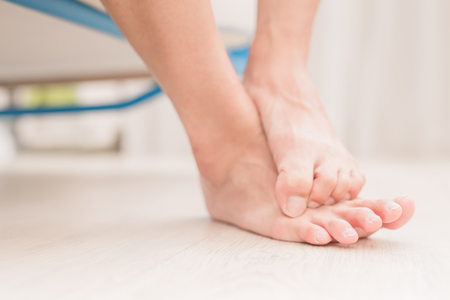Could You Have Psoriasis?
It started as a patch of skin that was red, raised, and itchy on your foot. As time passed the itching continued and the rash became scaly. Small blisters started to form, and the skin condition became increasingly painful. At Pasco-Hernando Foot & Ankle patients sometimes come to us with these symptoms thinking they have athlete’s foot, but in fact, the skin condition is actually psoriasis. August is Psoriasis Action Month, and we’d like to help educate patients about this disease.
More than Skin Deep
Although skin lesions may be the most visible symptom of psoriasis, the cause of this chronic disease is an immune system that’s run amok, sending signals to the body to produce new skin cells too rapidly. The skin condition is the result of too many new skin cells surfacing. In addition, about 30 percent of patients with psoriasis develop psoriatic arthritis causing painful inflammation of the joints. The large number of joints in your feet and the heavy use of your legs and feet get can make this a severely disabling problem.
Assessing Psoriasis Risk
Although people can develop psoriasis at any age, it frequently strikes young people ages 15 to 25. Research has shown that patients who get psoriasis have a genetic predisposition for the disease. However, genetics is not enough for the disease to become active. Environmental triggers are what sets the overactive immune system in motion. Triggers include:
Skin injury
Stress
Certain medications
Infection
Triggers can differ from individual to individual. Depending on your particular triggers, you can help reduce the risk of a flare-up by protecting the skin on your feet by wearing socks and shoes and avoiding risky behaviors like walking barefoot and sharing shoes, nail clippers and other items that touch another person’s foot. There are also medications available to help control psoriasis symptoms.
If you have an unexplained skin rash, it’s important that you get it evaluated promptly by our podiatrist, Dr. Lawrence J. Kales. Contact our Spring Hill (352 683-5799) or Hudson (727-868-2128) office for an appointment.
